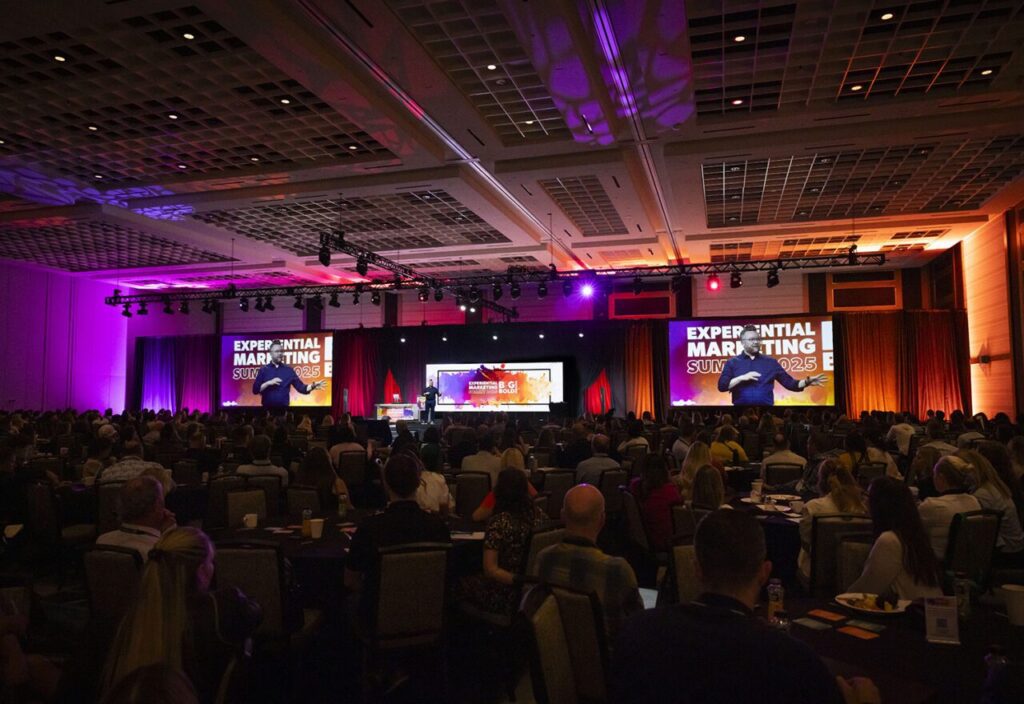Chief marketing officers need to be on top of industry trends and technology, so in an effort to help them get the most from their teams, IBM and The Wharton School of U. Penn announced a new CMO education program to bridge the gap between traditional, digital and data-driven marketing.
The partnership is designed to give established CMOs the knowledge and tools necessary to get the most out of cloud, analytics, mobile and social technologies to better understand and engage their customers. The new partnership was announced last week at the IBM Think Forum event in New York City.
customers. The new partnership was announced last week at the IBM Think Forum event in New York City.
“We want to help CMOs themselves—not aspiring CMOs, not the CMOs of tomorrow, but the people who are in roles today to be able to accelerate their personal and their organizations’ capability to make use of all these tools and techniques,” says Kevin Bishop, head of IBM’s ExperienceOne portfolio.
IBM’s recent CMO study found that 94 percent of the 524 respondents believe analytics will play a significant role in helping them reach their goals, but only 18 percent said their organizations are currently prepared to do so. New tech solutions are providing marketers with tons of new data, but many marketers are having trouble catching up and making proper sense of it all.
“IBM research polling both CEOs and CMOs showed a lack of preparedness in implementing marketing technology solutions, and it was clear that both groups felt unready for their organizations to embrace the possibilities that this kind of social and mobile technology can create,” Bishop says.
The reason for this unpreparedness is a cap in technology skills within marketing teams, a lack in ability to assemble the right kinds of data and organizing the internal structure to maximize abilities, he says.
“Many CMOs are absolutely willing to admit that they’d like some more expertise themselves. It’s easy to go to a conference to get new ideas and learn about what you should know, but there is a gap in getting the substance to be able to follow through on that. We wanted this to help people build their own skill base and change how they lead their organizations,” he says.
By combining The Wharton School’s experience in executive education and IBM’s leadership in marketing transformation and big data analytics, the program will give participants access to high-level peer-to-peer learning, advanced academic frameworks, hands-on simulations and live case studies across a host of data-driven social, mobile and digital marketing scenarios.
“When developing the program, we started to identify important themes for CMOs today and moving forward. It’s a forward-thinking program, so a lot focused on the survey work IBM had done, some of it was on the insights we have had with our direct interactions with CMOs. We spent a considerable amount of time figuring out topics to cover and got feedback from CMOs, as well,” says David J. Reibstein, the William S. Woodside Professor of Marketing at The Wharton School.
Reibstein says the program will focus on areas including building organizational capabilities so that marketing teams can continue to adapt into the future. Other major themes include strategic thinking, challenging existing thought models, being able to recognize opportunities and threats, optimizing marketing functions, what talent CMOs need on their teams, how to allocate resources and accounting for productivity from existing resources.
The program will span over two weeks time, but will be broken up so that enrollees will not be sitting in a classroom for two weeks straight. Sessions will be small—a total of 49 people, seven tables of seven will make up the project teams. Classes will start on Wharton campus with breaks in between so CMOs can apply what they’ve learned, then return to Wharton for a debrief on their experiences.
“There is a body of learning that comes from the academic side, there’s a body of expertise that IBM will inject into the course design, but there’s a body of this that comes from having a really good peer group and a structure that allows for sharing and interaction. We wanted it to be a partnership program, but in the end Wharton are the experts in this field. We wanted to inject the most modern capabilities and the most current examples into the program, so we designed the program jointly,” Bishop says.
Reibstein says teaming with IBM has helped produce a stronger program.
“Because of all the work IBM has been doing with CMOs we thought why not spend some time with them and work together to create the ideal program. It’s clear that IBM understands the CMO space quite well, and we’re welcoming that,” Reibstein says.
 Network
Network

